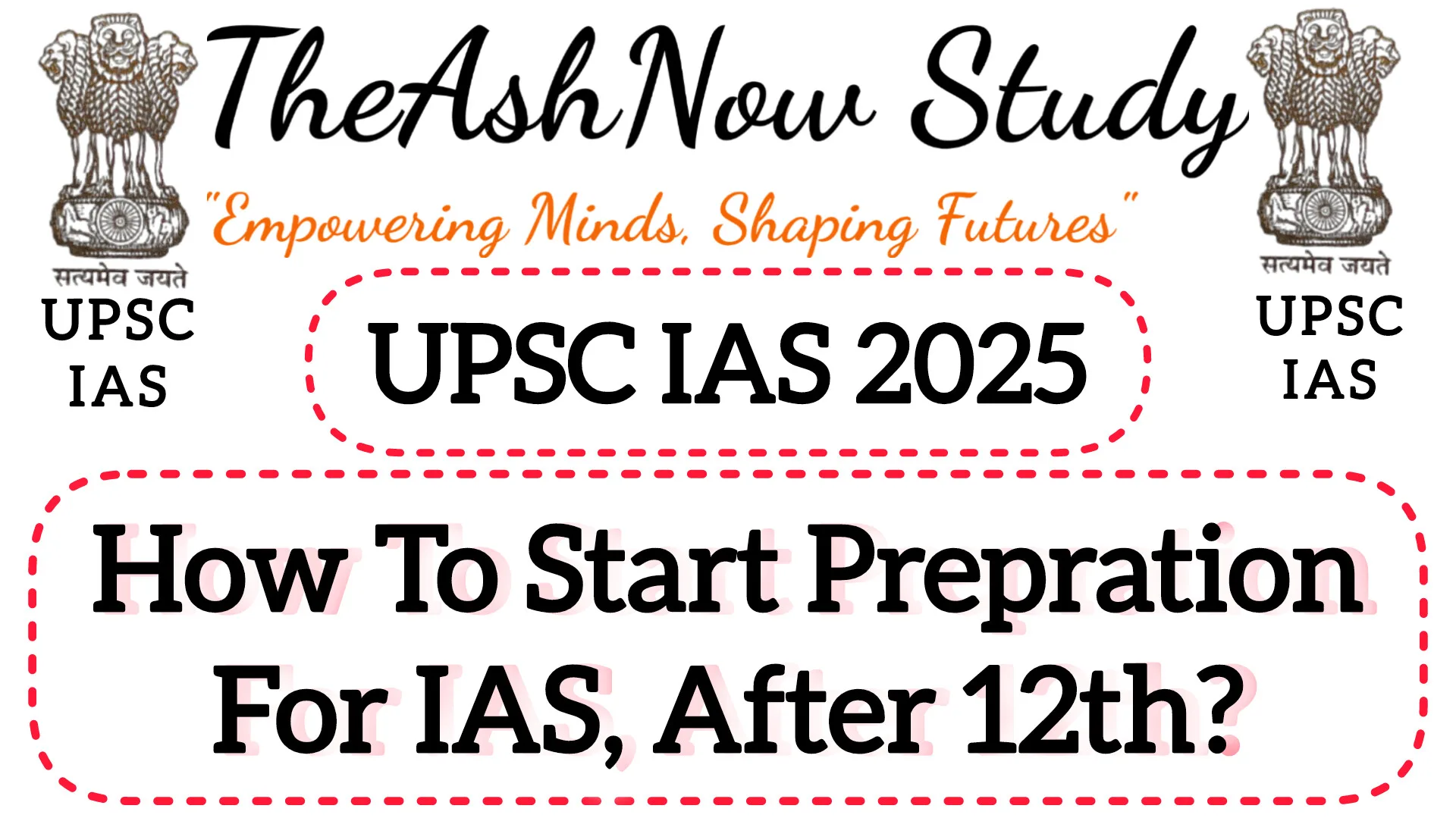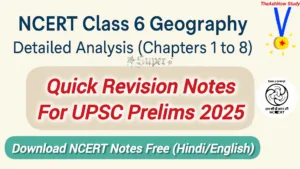How to Start Preparation For IAS After the 12th Exam!
The Union Public Service Commission (UPSC) Civil Services Examination (CSE) is one of India’s most prestigious and challenging exams. It opens the gateway to a career in the Indian Administrative Service (IAS), Indian Foreign Service (IFS), Indian Police Service (IPS), and other central services. Many aspirants dream of becoming civil servants, but starting preparation early, even immediately after completing the 12th standard, can provide a significant advantage. This guide offers a step-by-step approach to beginning your UPSC journey post-high school, along with critical data and tips to succeed.
Understanding the UPSC Examination Structure
Before diving into preparation, it’s essential to understand the structure of the UPSC CSE. The exam is conducted in three stages:
- Preliminary Examination (Prelims):
- Consists of two objective-type papers: General Studies (GS) and Civil Services Aptitude Test (CSAT).
- Total marks: 400 (200 each).
- Only qualifying in nature; scores are not counted in the final ranking.
- Main Examination (Mains):
- Consists of nine papers, including four General Studies papers, one Essay paper, two optional subject papers, and two qualifying language papers.
- Total marks: 1750 (excluding qualifying papers).
- Personality Test (Interview):
- It focuses on assessing candidates’ personalities, communication skills, and suitability for civil services.
- Total marks: 275.
The final ranking is based on marks scored in the Mains and the Interview.
Benefits of Starting Early
Starting UPSC preparation after the 12th exam offers several advantages:
- Familiarity with Syllabus: Early exposure to the syllabus helps in understanding the vast content and identifying strong and weak areas.
- Integrated Approach: Subjects like history, geography, and political science in graduation can align with the UPSC syllabus.
- Time for Skill Development: Candidates can simultaneously build skills such as essay writing, critical analysis, and communication.
Step-By-Step Guide to Start Preparation
Step 1: Understand the UPSC Syllabus and Exam Pattern
The first step is to thoroughly understand the syllabus. Break it into manageable sections, such as history, geography, economics, polity, environment, and current affairs. Download the detailed syllabus from the official UPSC website and keep it handy for regular reference.
Step 2: Choose the Right Graduation Stream
Your graduation stream can complement your UPSC preparation. While the choice of stream does not affect eligibility, humanities subjects like political science, history, and sociology align closely with the General Studies papers and optional subjects. Choose a stream that interests you and offers overlap with UPSC subjects.
Step 3: Build a Strong Foundation
- NCERT Books:
- Start with NCERT textbooks from Classes 6 to 12. They provide clear and concise information on fundamental topics.
- Subjects to focus on: History, Geography, Polity, Economics, and Science.
- Standard Reference Books:
- After completing NCERTs, move to standard books like:
- Indian Polity by M. Laxmikanth.
- Indian Economy by Ramesh Singh.
- History of Modern India by Bipin Chandra.
- Geography by Majid Husain.
- After completing NCERTs, move to standard books like:
- Daily Newspaper Reading:
- Develop a habit of reading newspapers like The Hindu or Indian Express for current affairs.
- Focus on editorials, national and international news, and issues related to governance and policies.
Step 4: Develop Analytical Skills
UPSC demands analytical thinking and a deep understanding of issues. Engage in activities that build these skills:
- Debates and Discussions: Participate in group discussions on current affairs.
- Essay Writing: Practice writing essays on diverse topics to enhance articulation and coherence.
- Critical Reading: Analyze articles and reports to identify key arguments and perspectives.
Step 5: Plan Your Preparation
Create a long-term study plan:
- Year 1 (Foundation Year):
- Focus on building a conceptual foundation with NCERTs and standard books.
- Develop the habit of making notes.
- Start practicing answer writing for Mains.
- Year 2 (Graduation):
- Integrate UPSC preparation with graduation subjects.
- Join online or offline coaching if needed.
- Dedicate time to current affairs and optional subject preparation.
- Year 3 (Pre-Final Year):
- Revise the entire syllabus multiple times.
- Take mock tests for Prelims and Mains.
- Identify and address weak areas.
- Year 4 (Final Year):
- Intensify your preparation for Prelims and Mains.
- Attempt full-length mock tests.
- Focus on interview preparation if you clear Mains.
Step 6: Practice Answer Writing
Answer writing is critical for the Mains exam. Start practicing early by:
- Writing concise answers to previous years’ questions.
- Following the “Introduction-Body-Conclusion” format.
- Sticking to word limits and emphasizing clarity and structure.
Step 7: Utilize Online Resources
Several online platforms provide free and paid resources for UPSC preparation, including:
- KGS, IAS, (Khan Global Studies) By- Khan Sir
- Drishti IAS, By- Dr. Vikash Divyakirti Sir
- VisionIAS
- Saraswati IAS
Use these platforms for test series, study materials, and video lectures.
Step 8: Stay Consistent and Motivated
Consistency is key to UPSC’s success. Develop a routine that includes study hours, breaks, and relaxation. Stay motivated by:
- Setting short-term and long-term goals.
- Celebrating small achievements.
- Seeking guidance from mentors and peers.
Important Data for UPSC Preparation
- Eligibility Criteria:
- Minimum age: 21 years.
- Educational Qualification: Graduation from a recognized university.
- Exam Timeline:
- Notification Release: February-March.
- Prelims: May-June.
- Mains: September-October.
- Interview: January-March (next year).
- Success Rate:
- On average, about 10 lakh candidates apply annually, but only 700-1000 are selected.
- Success rate: Less than 0.1%.
- Optional Subject Choices:
- Popular subjects: Geography, History, Public Administration, Sociology.
- Choose a subject based on interest, availability of resources, and scoring trends.
Common Mistakes to Avoid
- Neglecting Basics: Skipping NCERTs can lead to a weak foundation.
- Over-Reliance on Coaching: Coaching is supplementary; self-study is crucial.
- Ignoring Current Affairs: Regular updates are vital for all stages of the exam.
- Inconsistent Effort: Sporadic preparation leads to gaps in knowledge.
- Burnout: Avoid overexertion; maintain a balanced lifestyle.
Conclusion
Starting UPSC preparation after the 12th exam can set you on a path to success if approached methodically. Focus on building a strong foundation, developing analytical skills, and maintaining consistency. Remember, the journey to becoming a civil servant is a marathon, not a sprint. With dedication, discipline, and the right strategy, your dream of serving the nation can become a reality. Good luck!
Related Topics:





